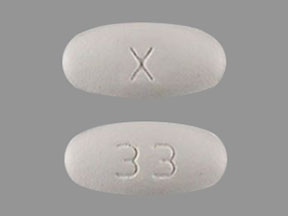
Augmentin Coupons & Savings Card – Discount Prices from $8.98
Brand for: Amoxicillin-clavulanate
My prescription
Edit
500-125MG, Amoxicillin-clavulanate (20 Tablets)
Select pharmacy

CVS
$21.50
COUPON PRICE
Walmart
$8.98
COUPON PRICE
Walgreens
$15.22
COUPON PRICE
Albertsons
$16.46
COUPON PRICEAugmentin savings card
Show this card to your pharmacist
Walmart
$8.98
BIN
ID
PCN
GRP
019876
LH1282A478
CHIPPO
LHX
Powered by
More prescriptions for urinary tract infection
More prescriptions for urinary tract infection
Augmentin (Amoxicillin-clavulanate) dosage forms
Dosage Quantity Price from Per unit 500-125MG 20 Tablets $8.98 $0.45 500-125MG 14 Tablets $7.04 $0.50 500-125MG 21 Tablets $9.31 $0.44 500-125MG 28 Tablets $11.58 $0.41 500-125MG 30 Tablets $12.22 $0.41
| Dosage | Quantity | Price from | Per unit |
|---|---|---|---|
| 500-125MG | 20 Tablets | $8.98 | $0.45 |
| 500-125MG | 14 Tablets | $7.04 | $0.50 |
| 500-125MG | 21 Tablets | $9.31 | $0.44 |
| 500-125MG | 28 Tablets | $11.58 | $0.41 |
| 500-125MG | 30 Tablets | $12.22 | $0.41 |
What is Augmentin mainly used for?
Augmentin is mainly used to treat bacterial infections. It is effective against a variety of infections, including those of the respiratory tract, urinary tract, skin, and sinus.
Is Augmentin a very strong antibiotic?
Augmentin is considered a broad-spectrum antibiotic, which means it is effective against a wide range of bacteria. It combines amoxicillin with clavulanic acid to enhance its effectiveness against bacteria that produce beta-lactamase, an enzyme that can make some bacteria resistant to antibiotics. While it is strong in terms of its broad coverage, the appropriateness of its use depends on the specific infection and the bacteria involved. A healthcare provider should determine if Augmentin is the right choice for a particular infection.
What is the most common side effect of Augmentin?
The most common side effect of Augmentin is gastrointestinal upset, which often includes diarrhea.
What kind of infections does Augmentin treat?
Augmentin is commonly used to treat a variety of bacterial infections. These include respiratory tract infections such as sinusitis, pneumonia, and bronchitis; ear infections; urinary tract infections; skin infections; and infections of the soft tissues. It is effective against infections caused by bacteria that are susceptible to the combination of amoxicillin and clavulanate potassium.
What cannot be taken with Augmentin?
Augmentin should not be taken with allopurinol, as this combination can increase the risk of skin rashes. Additionally, it is advisable to avoid alcohol while taking Augmentin, as it may increase the risk of liver problems or gastrointestinal side effects. Always consult with a healthcare provider for a comprehensive list of potential interactions with other medications or supplements.
